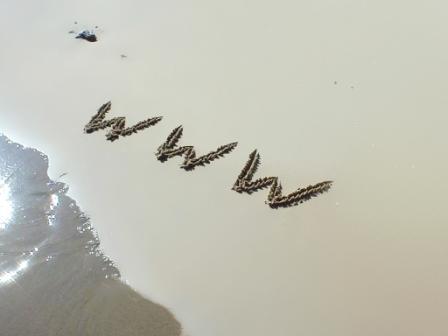There are pro's &
con's to both Pay-Per-Click advertising and
optimizing for natural search engine
traffic.
PPC advertising has
many great benefits. First of all, you get your
traffic going quickly. I have used this
advantage many times. I test new products and
even new websites through PPC advertising
before making a decision to promote or scrap my
new website or product idea.
I am a firm believer in
testing new products before throwing large
amounts of money into advertising. PPC
advertising is a great way to do this. For
example, with Google's Adwords program, you can
post your ad, pay a $5 sign-up fee and have
highly targeted traffic to your website within
an hour. How is that for
efficiency?
Also, you can moniter
your click charges and stop them before they
get too expensive. By the time you have spent
your budget on clicks, you should have a pretty
good idea of how successful your product is
going to be.
I think of PPC
advertising as being the most useful when
starting a new business or product. WIth PPC
advertising, you can quickly and efficiently
find out which keywords you need to target and
which products are the most
popular.
Once that testing
period is over, however, it's time to look into
Search Engine Optimization. PPC advertising can
be very expensive, costing hundreds, even
thousands a month in advertising costs. Once
you know what keywords to target, it's time to
put together a plan on how you are going to
optimize your website. The drawbacks to search
engine optimization is that it requires a
lengthy amount of time to get your site to rank
high with your keywords. That is why I suggest
using this method after the testing period is
over, when you already know your business will
be profitable.
Search Engine
Optimization is definately a slow way to get
your website traffic if you plan on not using
PPC traffic. It could be a long, expensive road
before you even begin selling your product.
Search engines can take months, even years to
start pulling up high with the search engines.
But, natural search engine traffic is
definately the best long term way to get the
majority of your traffic.
When getting your site
to start pulling up in SE natural listings
there are 2 main things that need to be
done:
-
-
Add
Content
-
Add Backlinks
Search engine traffic requires you to submit
your site to many different search engines and
wait, maybe even months for them to spider your
website.
I have had much better luck with another
route. You can pay a fee to have your website
listed in a very high ranking directory like
www.dmoz.com (free),
www.yahoo.com's
directory ($299), sbd.bcentral.com (only
$50), or another website where your link is
on a page that has a page ranking of 4,5,6
or higher. The sites I mentioned above have
rankings of 8 or 9. When you have your link
on a site with that high of a ranking, the
search engines are spidering those sites
constantly and will find your website and
spider it very quickly. Not only will they
find it quickly but because you are linked
to a high ranking site, you will also rank
higher with the SE.
When looking for backlinks, focus on sites
with content related to yours and high page
rankings of 4 or higher.
As for content on your site, try to include
about 200-500 words of content or text on most
of the pages of your site. Text makes your site
bulkier. Make sure to integrate all of the
keywords you want to target within the content
of your site. Don't worry about cramming the
same keywords in over and over. Search engines
may possibly even blacklist your site for
keyword stuffing, if you try to do that.
There is a lot to know about Search Engine
Optimization but, those are the 2 main factors
when getting started.
In summary, when starting out, I suggest
using PPC advertising for testing products and
keywords. Spend time optimizing your site for
search engine traffic after you have tested
your products and keywords.
Carrie Reeder has been a web marketer for 3
years and has various websites where she sells
a variety of products from software to clothing
accessories.
www.thelevelcollection.com
|
